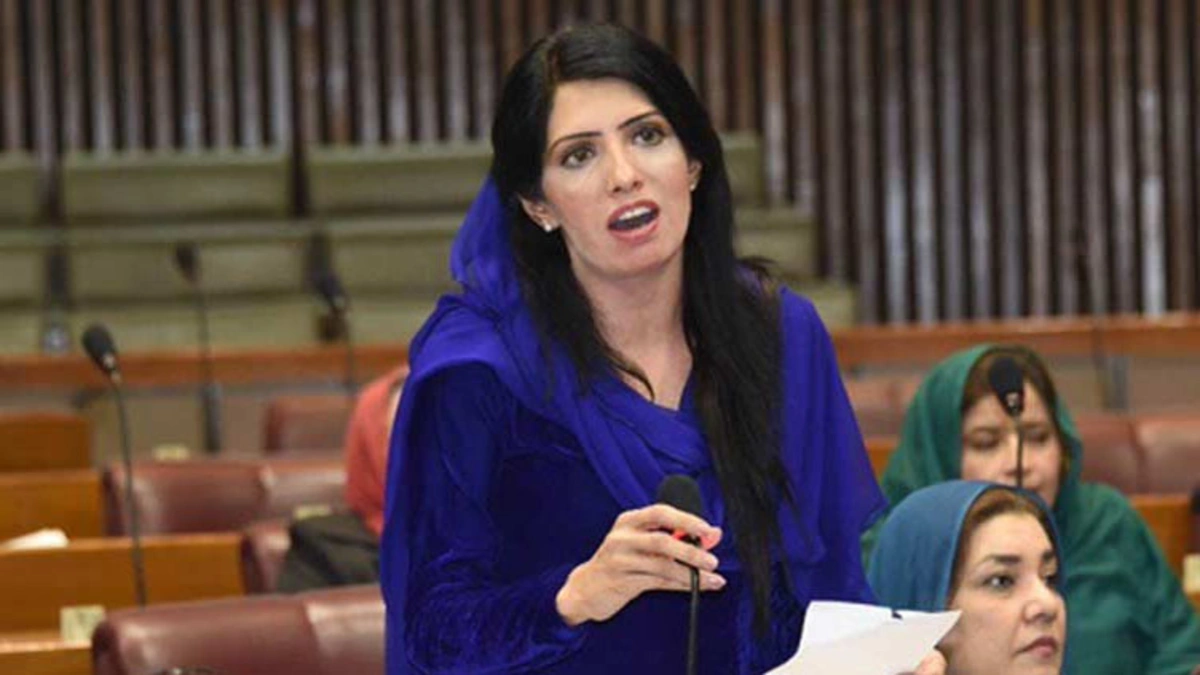Sanam Javaid and Aliya Hamza have been sentenced to 5 years in prison. Read the full case details, charges, and latest updates on this high-profile verdict
Who is Sanam Javaid?
She is a well-known political activist and member of the Pakistan Tehreek-e-Insaf (PTI) party. She has gained prominence for her active participation in rallies, protests, and grassroots campaigns supporting PTI’s political agenda. Recognized for her outspoken nature and dedication to party causes, Sanam Javaid has become a prominent voice in Pakistan’s political landscape.

Her profile drew even greater attention following the May 9 riot case, which involved violent demonstrations after the arrest of former Prime Minister Imran Khan. Authorities accused her of taking part in the Shadman Police Station attack, an incident that became a focal point in the legal proceedings. This ultimately led to her conviction by an Anti-Terrorism Court, resulting in a five-year prison sentence.
Who is Aliya Hamza?
Aliya Hamza is a prominent PTI leader known for her strong presence in political debates and legislative affairs. Over the years, she has established herself as a determined representative of PTI’s vision, often defending the party’s policies in both parliament and public forums. Her speeches and appearances have earned her recognition among PTI supporters and political observers alike.
However, her political journey took a major turn when she was linked to the May 9 unrest. She was accused of participating in acts of violence connected to the Shadman Police Station attack. Alongside Sanam Javaid, she was found guilty by the Anti-Terrorism Court, leading to a five-year sentence. The verdict has ignited debates over political victimization and the boundaries of lawful protest in Pakistan.

Overview of Case
In a high-profile verdict issued on August 11, 2025, an Anti-Terrorism Court (ATC) in Lahore delivered its judgment in the widely followed May 9 riot cases. Two PTI leaders—Sanam Javaid and Aliya (Alia) Hamza—were each sentenced to five years in prison for their alleged roles in the Shadman Police Station arson and related violent incidents. Meanwhile, PTI Vice Chairman Shah Mehmood Qureshi was acquitted in both cases.
Source GEO NEWS
Case Outcome & Background
Nature of the Case
The ATC, presided by Judge Manzar Ali Gill, delivered the verdict following deliberations in two separate cases stemming from the May 9, 2023 unrest.
In the Rahat Bakery/Corps Commander House attack, several PTI leaders received 10-year prison sentences, while Sanam Javaid and Aliya Hamza received five-year terms.
In the Shadman Police Station attack, out of 25 accused, 12—including Qureshi—were acquitted. Aliya Hamza and Sanam Javaid were convicted.
Broader Legal Context
Prosecution spokespersons argued there was “substantial and cogent evidence” against the accused, claiming they incited violence, damage to state property, and chaos.
In contrast, defense attorneys questioned the legitimacy of the conspiracy allegations, citing constitutional protections such as Article 13 (protection from double jeopardy) and arguing that repeated prosecutions for the same alleged conspiracy violate legal norms. They also challenged the procedural integrity of evidence—claiming witnesses gave contradictory statements and that no site inpection or plan was ever conducted
Also Read: Aima Baig Unexpected Wedding to ‘Rastah’ Founder Zain Ahmed in 2025 Goes Viral
Implications & Political Repercussions
The sentencing of Sanam Javaid and Aliya Hamza marks a significant setback for PTI, particularly as it coincides with convictions of other senior leaders like Dr. Yasmin Rashid, Omar Sarfraz Cheema, Senator Ejaz Chaudhry, and Mian Mahmoodur Rasheed, who received harsher sentences (up to 10 years).
Meanwhile, Shah Mehmood Qureshi’s acquittal may offer some political respite for PTI, though the overall landscape remains highly contentious.
The rulings may intensify political tensions within Pakistan, with PTI likely to pursue judicial appeals and potentially approach the Supreme Court. The convictions also continue to fuel debates on judicial fairness, political victimization, and rule of law—topics already central to Pakistan’s post-May 9 discourse.




Join The Discussion